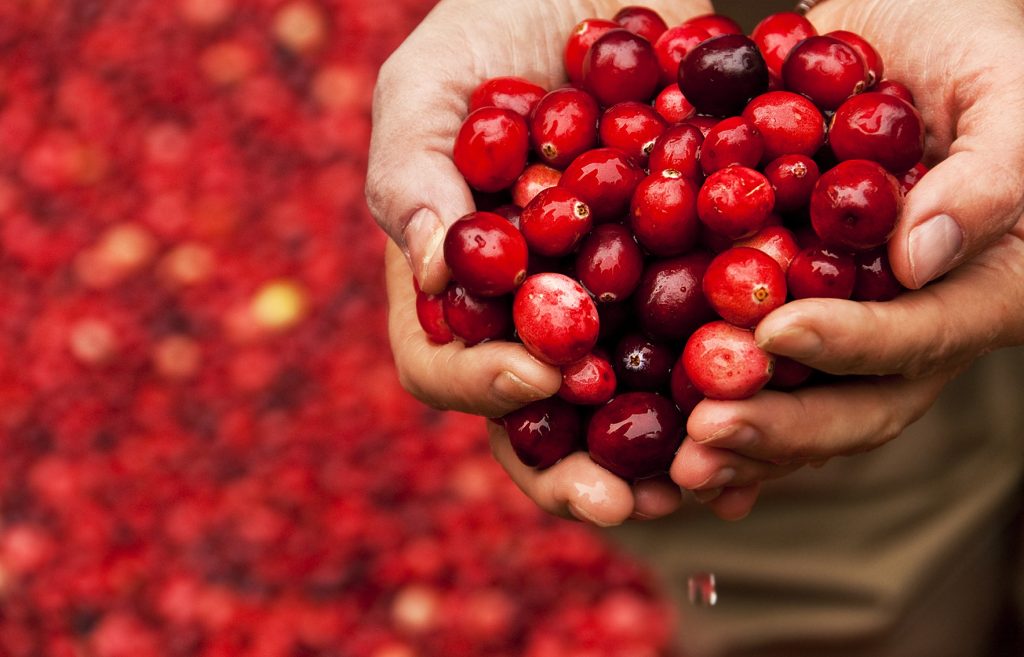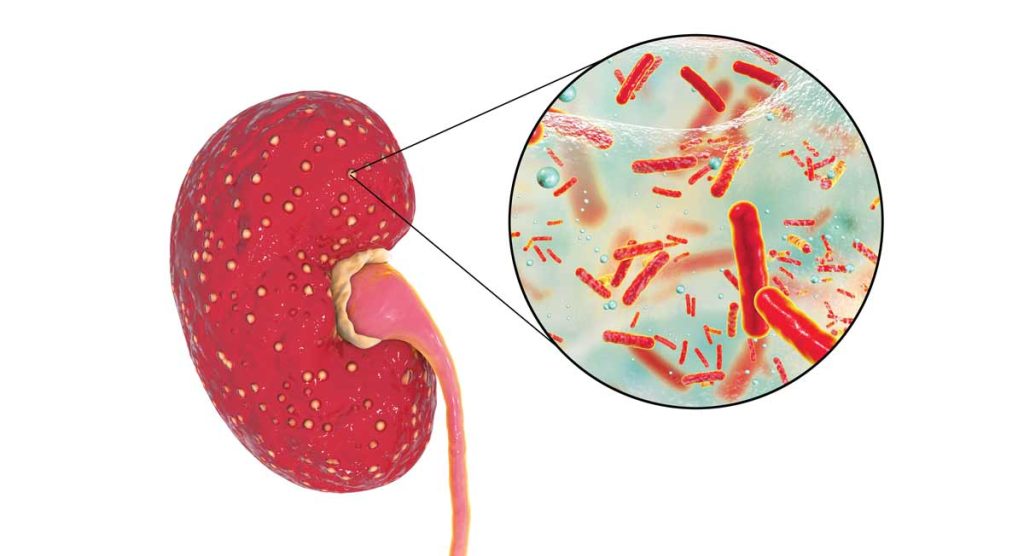Is cranberry juice really effective for UTIs?
Over 50% of women experience urinary tract infections (UTIs) at least once, and a third of them experience recurrent UTIs.
A recent meta-analysis by Australian researchers with approximately 9,000 participants supports the notion that cranberries are an effective dietary supplement for those trying to prevent recurrent UTIs.
According to the researchers’ data, cranberries have a preventive effect against UTIs in women, kids, and individuals who are susceptible to them after receiving medical treatment.
In some persons who experience recurrent UTIs, the authors claim that their research provides compelling evidence that cranberry juice can lower the incidence of UTI infections.

For many years, cranberries have been used to treat or prevent urinary tract infections (UTIs). However, research has thus far shown contradictory proof of its efficacy.
In a recent study, researchers from Flinders University and The Children’s Hospital at Westmead in Australia found that cranberry products may in fact lower the risk of UTIs in specific populations.
A review that was first published in 1998 and most recently updated in 2012 is now in its sixth iteration. The Cochrane Reviews mention it.
The research conducted by Prof. Jonathan Craig and his team “shows a very positive finding that cranberry juice can prevent UTI in susceptible people,” according to Prof. Craig, the study’s senior author.
UTI with E. coli
The urethra, bladder, ureter, and kidney are all parts of the urinary system, which is where UTIs originate from when bacteria enter and infect them. The most frequent cause of UTIs is the expansion of Escherichia coli (E. coli) in the urinary system.
This particular type of bacteria is normally found in the gut, but it has the potential to spread to the bladder when faeces are contaminated. Then it attaches to the bladder walls and starts to proliferate.
The study’s principal author, Dr. Gabrielle Williams, told that the symptoms shouldn’t be taken lightly: “People with recurrent UTI symptoms are occasionally desperate for something that heals them. Having a treatment option that they can attempt is a good thing because I’ve seen mothers in tears over their children’s UTIs.
Dr. Jacqueline Stephens, a co-author of the study, claims that untreated UTIs can spread to the kidneys and result in problems like sepsis. The greatest way to reduce these hazards, according to her, is through preventive.
Cranberries’ potent antioxidants, polyphenols
Prescriptions for antibiotics are the most common form of prevention and treatment, and this has led to an increase in infections that are resistant to antibiotics.
Proanthocyanidins (PAC), a kind of polyphenol, are found in cranberries. These “offense and defense” nutrients have exceptional antioxidant and antibacterial properties.
Researchers from Canada discovered that PAC may aid in preventing the development of bacterial biofilm in the lining of the urinary system in a 2022 study article. Additionally, they demonstrated how PAC could prevent the early activation of uropathogenic E. coli “virulence genes in the gut reservoir.”
A review of 50 studies
The Cochrane Kidney and Transplant Specialised Register was searched up until March 2023 by the researchers. Results from randomised controlled trials comparing cranberry products to placebos, probiotics or antibiotics, or no specific treatment for UTI prevention were analysed.
This version now includes 50 research with 8,857 individuals after the team incorporated 26 new studies.
Doctor Stephens stated, “The trials we examined used a variety of techniques to ascertain the advantages of cranberry products. The overwhelming majority of studies compared cranberry products with a placebo or no treatment for UTI and found that cranberry juice or capsules reduced the number of UTIs in women with recurrent cases, in children, and in people susceptible to UTIs after medical interventions like bladder radiotherapy.”
Consuming cranberry juice has many advantages.
In women with recurrent UTIs, consumption of cranberry products was strongly associated with a lower risk of symptomatic, culture-verified UTIs, according to the study’s authors.
The use of therapies like bladder irradiation among children and people at risk of UTIs was found to have a considerable protective advantage, according to the study. It was unclear which treatment for UTIs was more effective—cranberry juice, pills, or various PAC dosages.
Few consumers who used cranberry products mentioned any negative effects. The most frequent adverse effect was upset stomach. But according to the study, the proportion of people who had these side effects “probably does not differ between those taking cranberry products and those receiving placebo or no specific treatment.”
How much to consume?
8 to 10 ounces (240 to 300 mL) of cranberry juice per day may be the most efficient dosage if you’re using it to help prevent a UTI from recurring, according to study.
In 373 women with a history of recent UTI, a 2016 high-quality study examined the results of cranberry juice consumption on a regular basis. It was discovered that people who consumed 8 ounces (240 mL) of cranberry juice every day for 24 weeks experienced fewer UTIs than those who took a placebo.
In contrast to the 67 diagnosed UTIs experienced by the women in the placebo group, the women in the cranberry group had a total of 39 diagnosed UTIs.
The dosage for cranberry supplements varies according to the contents. According to studies, cranberry extract doses of 200 to 500 mg per day may help some people experience fewer UTI recurrences.
There are many different kinds of cranberry supplements available, so it’s crucial to read the instructions on your particular product for recommended dosage information.
It’s best to first consult with a healthcare provider if you frequently have UTIs and are interested in utilising cranberry juice or supplements to help avoid them.
Although some research does indicate that certain individuals may be helped by cranberries in preventing UTIs from recurring, other treatments might be more suitable and successful.
Other natural UTI remedies
Try out any of these scientifically supported suggestions if you frequently develop UTIs and are looking for natural ways to keep them from recurring:
- Remain hydrated. According to certain research, some persons may be protected from recurrent UTIs by consuming at least 6 to 8 cups (1.5-2 litres) of water daily.
- Reduce your consumption of certain foods and drinks. Diets rich in animal proteins, artificially sweetened beverages, coffee, soda, and alcohol may raise the risk of UTIs and exacerbate their symptoms. More study is, however, required in this field.
- Front to back, wipe. After using the loo, women should wipe from front to back rather than back to front to help lower their risk of getting a UTI.
- Don’t wait to urinate. Women who wait to void or go to the toilet more frequently have a higher chance of developing recurrent UTIs. Bacteria might build up in the urinary tract if you don’t urinate regularly enough.
- Increase your level of activity and keep a healthy weight. Recurrent UTI rates are associated with being overweight and inactive.
- Maintain body weight. You may lower your risk by maintaining a healthy body weight and engaging in adequate physical activity (if you are able to).
- Other treatments and supplements that could be beneficial. For some patients, other dietary supplements including D-mannose, particular probiotic strains, cranberry products with propolis, as well as vaccines and immunomodulating drugs, may be a possibility.
Consult a medical practitioner if you believe you have a UTI. UTIs can develop into serious, sometimes fatal illnesses.
If you frequently experience UTIs, collaborate with a reputable healthcare provider to develop a treatment strategy based on your individual medical requirements.
The conclusion
According to research, some persons may experience a lower risk of UTI recurrence when using cranberry products like cranberry juice and pills with cranberry extract. However, there isn’t enough proof to support the claim that these products can assist treat an existing UTI.
If you frequently experience UTIs and wish to stop them from recurring, engage with your healthcare provider to develop a plan that may include taking vitamins and making other lifestyle changes.
Your quality of life may be negatively impacted by recurring UTIs. If you do, create a preventative strategy with the help of a healthcare provider. It could involve altering your diet, getting more exercise, using supplements, and other things.
REFERENCES:
- https://www.medicalnewstoday.com/articles/is-cranberry-juice-really-effective-against-urinary-tract-infections
- https://www.healthline.com/nutrition/cranberry-juice-uti
- https://www.webmd.com/a-to-z-guides/cranberries-for-uti-protection
- https://www.houstonmethodist.org/blog/articles/2021/nov/uti-home-remedies-does-cranberry-juice-really-help/
For Urinary Tract Infection medications that have been suggested by doctors worldwide are available here https://mygenericpharmacy.com/index.php?cPath=77_282
